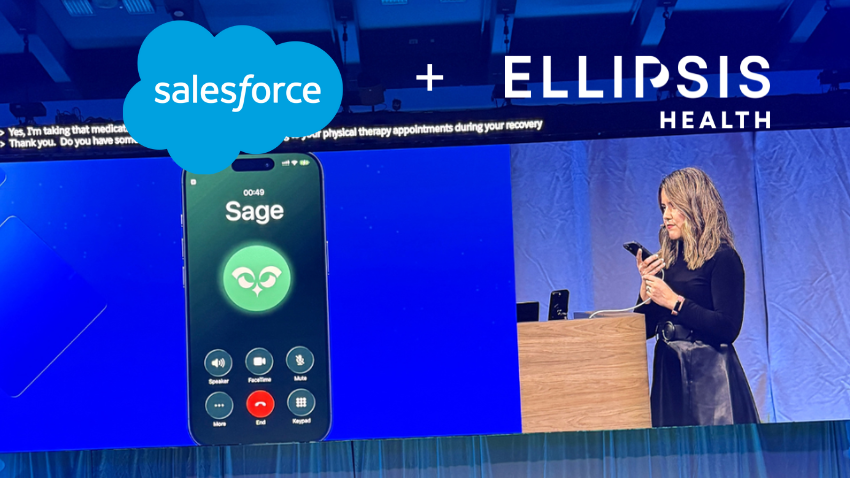
Ellipsis Health and Salesforce Partner to Transform Healthcare with Agentic AI
Salesforce and Ellipsis Health have joined forces to bring Sage, the emotionally intelligent, agentic AI Care Manager, directly into Salesforce Health Cloud.
All Types
- Blog
- News
- Research
- White Papers
- All Types
All Topics
- Blog
- In the News
- Press Release
- Research Paper
- Video
- All Topics

